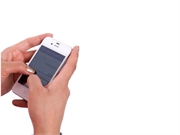WEDNESDAY, Aug. 5, 2020 (HealthDay News) — People getting their COVID-19 information from social media are more likely to receive misinformation, Canadian researchers report.
But those who trust traditional media are less likely to have misperceptions. And they’re more likely to stick to public health recommendations such as social distancing, the research team found.
For the study, researchers looked at millions of tweets, thousands of news stories and a survey of Canadians.
“Platforms like Twitter and Facebook are increasingly becoming the primary sources of news and misinformation for Canadians and people around the world,” said researcher Aengus Bridgman, from McGill University in Montreal.
“In the context of a crisis like COVID-19, however, there is good reason to be concerned about the role that the consumption of social media is playing in boosting misperceptions,” Bridgman said in a university news release.
False information about COVID-19 is more readily found on social media like Twitter than on traditional news outlets, Bridgman and colleagues found.
And they spotted big differences in behaviors and attitudes among people who get their news from social media instead of traditional news. These differences remained even after accounting for factors like scientific literacy and socioeconomic differences.
Those who use social media regularly are less likely to keep social distancing and to see COVID-19 as a threat, but for those who get their information from regular news media it’s the opposite, the researchers found.
“There is growing evidence that misinformation circulating on social media poses public health risks,” said researcher Taylor Owen, an associate professor at the Max Bell School of Public Policy at McGill. “This makes it even more important for policymakers and social media platforms to flatten the curve of misinformation.”
The report was recently published in the journal Harvard Kennedy School Misinformation Review.
More information
For more on COVID-19 myths and facts, see Johns Hopkins University.
Copyright © 2026 HealthDay. All rights reserved.

